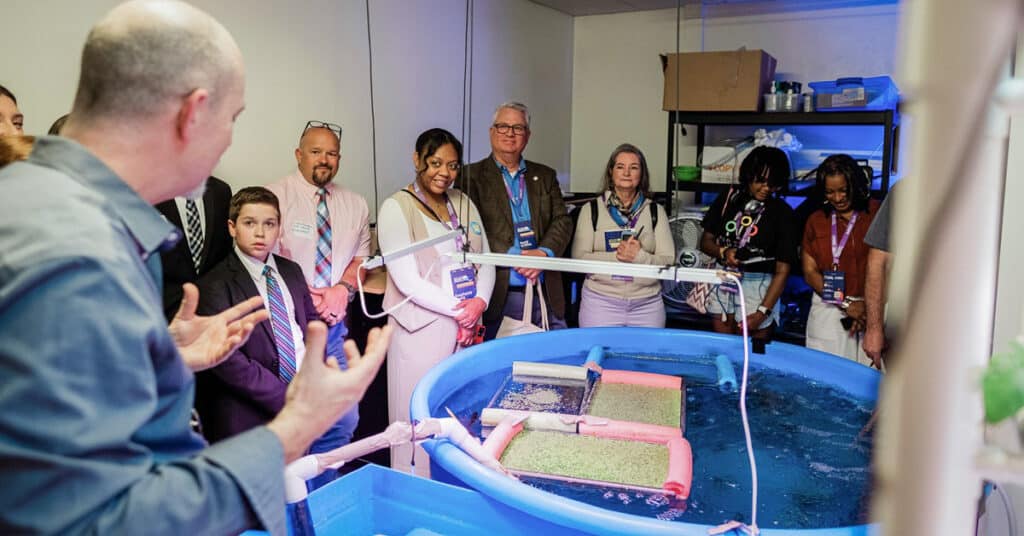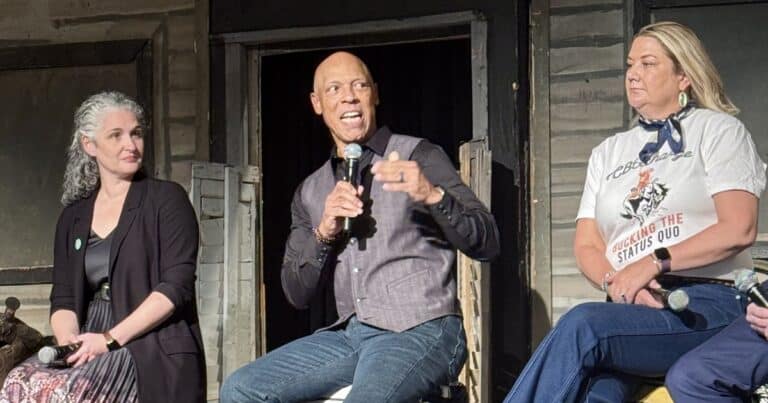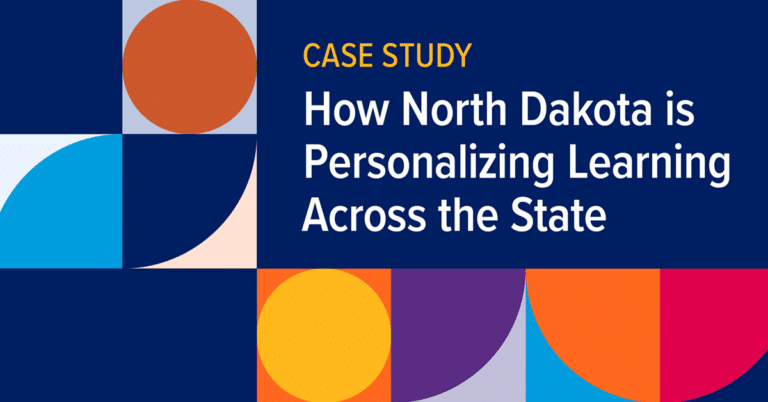When describing how personalized learning initially took hold in his district, Brian White, superintendent of Butler Area School District in Pennsylvania, had this to say: “If a student had the right sequence of classes with the right teachers on the right days, they experienced a wonderful, personalized learning journey. If they didn’t, it felt like 1970.”

This is a challenge for many learning communities beginning the work of student-centered learning: there are pockets of success, with some educators going all in and others continuing the business of school as usual. For White, supporting every educator in making the leap meant adapting their teacher evaluation process and growing the capacity of new educator hires to build their skills in personalizing learning.
“We’re trying to make the process of teacher evaluation as personal for staff as it is for students,” explained White. Pennsylvania has mandated teacher evaluation based on the Danielson framework, and White explained that it had become very mechanical, just to “click a couple of boxes.” Meaningful and relevant assessment and learning for students requires meaningful and relevant assessment and learning for teachers, which meant making some crucial changes to how teachers were evaluated.
“New teachers will be mentored by veteran teachers and have their professional development plans developed by those veteran teachers. They’ll be a part of professional learning communities focused on growing the skills we’ve identified that we need more of,” said White. “It’s not just about evaluation. It’s about setting your colleagues up for success.”
Done in collaboration and partnership, this new process empowers teachers to be leaders of their own learning. And a benefit of educator ownership over the teacher evaluation process? Addressing turnover.
“Prior to COVID, we had 10 to 15 teachers retire each year. This year, we hired 30 new teachers,” White said. “We do not have the administrative capacity to support them all. So, do we add administrators or invest in teachers? I’d rather invest in the teachers and put that money toward their growth and development.”
White and his team aligned their teacher evaluation process with Remake Learning‘s Personalized Learning Working Group’s Educator Competency Progressions for the Butler Area School District. This working group, led by KnowledgeWorks Senior Director of Teaching and Learning Lori Phillips, with support from KnowledgeWorks Director of Teaching and Learning Deion Jordan, is a collaborative between education and community leaders dedicated to driving systems change aimed at increasing personalization and learner agency across Southwest Pennsylvania. White also applied and received a waiver from the state department of education, granting them the flexibility to ensure the teacher evaluation process aligns with their vision for personalized learning.
“Aligning educator evaluation to the personalized learning framework is a significant undertaking that will undoubtedly produce impactful results across the Butler learning ecosystem. The competency progressions help educators understand where they stand in their pedagogical development and innovation—from shifting mindsets to building sustainable systems within their unique school contexts,” Jordan said. “Dr. White’s commitment and mentorship strategy offers veteran teachers a robust framework for enhanced coaching conversations and goal-setting, all centered around empowering learners, building deep, meaningful relationships and designing flexible learning environments. Each of these elements is accompanied by a student-facing companion document, creating a transparent system for both instruction and evaluation.”
For White, supporting students means supporting teachers.
“We’ve been so focused on our Portrait of the Graduate from a student lens, but a lot of what students need to do can’t happen until teachers change how they organize instruction. You’ve got to set the stage for that.”
This was written by former Senior Manager of Communications Jillian Kuhlmann.




